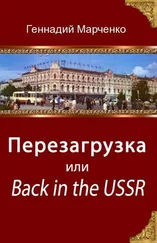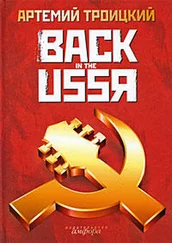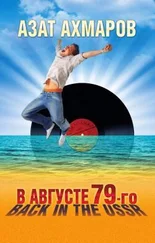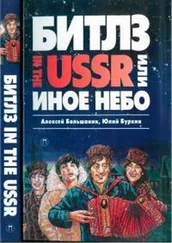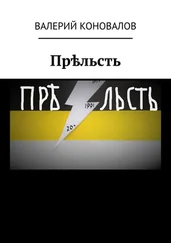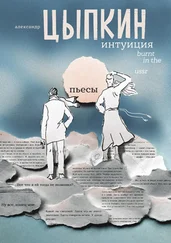The staff finally catch me, put me in a strait-jacket and pack me off to ‘Happy Village,’ a large mental asylum in the mountains. There I’m cared for by an unusually kind young doctor who pays no attention to my repulsive appearance. She even suggests I go to a special clinic to have my nose repaired but I decline: “I’m not planning to become a film star; I need a psychiatrist not a surgeon.”
The doctor orders me to be tied to a bed and then she injects me with Sulfazine. [36] A powerful tranquillizer.
With fiendish strength I tear off the sheets that bind me and run away. Although the staff have removed the handles of the ward doors I manage to prise them open with a dinner spoon. I run out of the hospital and down the road. Orderlies catch me two blocks from the clinic, drag me back and tie me up again. I get another shot of Sulfazine. My temperature soars. For two or three days I lie motionless, soaked in sweat. Gradually I return to my senses. When I admit to the doctor that no one wants to kill me she takes me off the Sulfazine and orders me to be untied.
Soon I am cracking jokes with the doctor and making her laugh. Through her contacts she finds me a job as a night watchman in a Tblisi theatre. With a roof over my head I’m able to keep off the drink for several months. One day, however, I run into Tolik, an old friend from Zestafoni who’s trying his luck begging in the capital. He has nowhere to sleep. I can’t recommend the cavern so we agree that after the theatre performance has ended Tolik will tap on my window and I’ll let him in for the night. He sleeps curled up on some newspaper in a corner, refusing my offer of the couch: “No, no, Vanya, I piss myself after I’ve had a bottle or two.”
Despite his alcoholism Tolik is so sharp he only has to look at a few lines of Pravda to arrive at conclusions we hear a month later on Voice of America. He tells me that something is changing in the USSR.
“But what difference will it make to our lives, Tolik?” I ask. “What happens in Moscow might as well take place on the moon.”
The theatre management know about my weakness and try to keep me away from the bottle. However it seems churlish not to accompany Tolik when he pours his wine at night. Early in the morning he sneaks out, taking the empties with him. He spends the day begging and I give him some money from my pay to buy bottles for the night.
It’s not long however, before we overdo it. The director arrives in the morning to find me sitting among the scenery as drunk as wine itself. Centre stage, Tolik strikes the pose of a Roman senator as he declaims Bezimensky’s Tragedian Night . All around us roll empty bottles. We are puffing away like the Battleship Potemkin , although smoking is strictly forbidden in the theatre. They throw my friend out and call an ambulance for me. I am taken back to Happy Village and this time the doctor is not so kind.
* * *
I have been away from Chapaevsk for many years and hardly keep in touch with my family, apart from the occasional phone call to my sister. After my second cure I receive news from her that our mother has died. I go back to Chapaevsk for the last time, staying with my sister and her family. I don’t understand them nor they me, but we are civil to each other.
My sister is the only family member I have left in Chapaevsk. Dobrinin died some years ago; Uncle Volodya moved to Ukraine. I hear he took to drink after he was widowed. My wife and daughter have been living in Estonia since they left me back in 1967. My sister occasionally gives me news of them.
I wonder whether to try to find out what happened to my real father. Since the time of Khrushchev I have accepted that he was shot. In the new climate of political openness it might be possible to learn details of his arrest and trial. But I decide it’s better not to know the truth. If he was a Chekist he was probably responsible for sending people to their deaths.
My sister tells me there is some furniture left from our parents’ house that she wants to sell.
“Keep the money,” I tell her, “all I want is enough for a ticket out of this hell-hole.”
“Where are you going?”
“Who knows? Fiji maybe.”
And I really am thinking how good it will be to leave the country. Preferably forever.
Just before I leave Chapaevsk I run into a couple of old drinking acquaintances who are wending an unsteady way back from the cemetery. “Poor old thing,” they say, after exchanging greetings with me: “They let us join the wake so it’d look as though she had someone to mourn her. We only knew her by sight; she died in the old people’s home.”
“Who was it?”
“Marusya Timofeyevna. Perhaps you knew her. She used to live in Bersol.”
The dead woman was our old home-help, Cyclops. I pity her now, for her life turned out to be even more wretched than mine. After she left my parents she looked after children in other Party families until she became too old and infirm. She never married. The war left millions of surplus women and Marusya was last in the queue. Having no one to care for her, she entered the old people’s home. It is the oldest building in town and worse than any strict-regime prison. The staff steal all the food and leave the inmates to decay in their own filth. As you pass the home you can see the old people standing outside on metal balconies, gazing forlornly at a world they have already left.
And that is where I’ll end up if I stay in Chapaevsk, providing I don’t drink myself to death first.
I have no reason to stay in Chapaevsk so I return to Georgia. The theatre takes me back as a watchman and I manage to stay sober for a while.
Change is in the air. Georgia no longer wants to be part of the Soviet Union. Civil war looms. My friends at the theatre fix me up with Georgian papers and take me with them on tour to the UK. I claim political asylum. I’ll start life afresh.
At first I’m excited by my new surroundings. Like every naive Russian visitor I marvel at the shops. ‘You could cover our walls with their toilet paper,’ I write to my sister. It doesn’t take me long to discover that vodka is cheaper than eau de Cologne. There’s no need to drink substitutes when you can afford the real thing.
I discover too, that our propagandists didn’t lie about the decadence of the West. People go around in clothes that would shame a Zestafoni tramp — and not only the poor: one day I see a young man walk out of an expensive restaurant in a bushlat — a padded grey Soviet prison jacket.
It shocks me to see a teenage girl put a bottle of beer to her lips. Back home even tramps rarely stoop that low; we keep personal drinking vessels. In any Russian park, if you look carefully, you’ll see a glass under a hedge or bush, covered over with twigs to protect it from dirt. But perhaps we’re more concerned with practicalities than appearances, for when your hands are shaking like death it is impossible to lift a bottle to your mouth. Besides, to spill a glass is a misfortune; to spill a bottle a tragedy.
But I soon get tired of the emptiness of the West. Here, people turn their lives into a ceaseless scramble for money. Most are rich beyond the dreams of a Chapaevsk citizen yet they are never content with what they have. Their system is a treadmill, not freedom.
All the same, I settle into life here, with my own room and a small pension. My furniture comes from the streets: chairs, mattress, sofa, vacuum cleaner, TV and a video that I repaired myself. At night I like to wander around my neighbourhood, seeing what I can pick up. Looking through people’s rubbish, I learn a lot about them — what they read and what they eat, whether they’re drinkers and whether they’re ashamed of what they drink.
Читать дальше
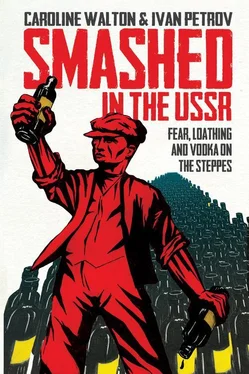
![Геннадий Марченко - Перезагрузка или Back in the Ussr. Книга 1. [СИ]](/books/53319/gennadij-marchenko-perezagruzka-ili-back-in-the-uss-thumb.webp)
